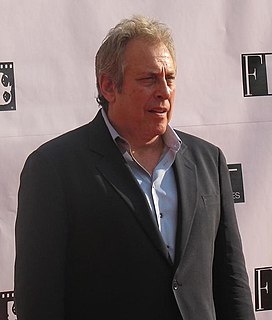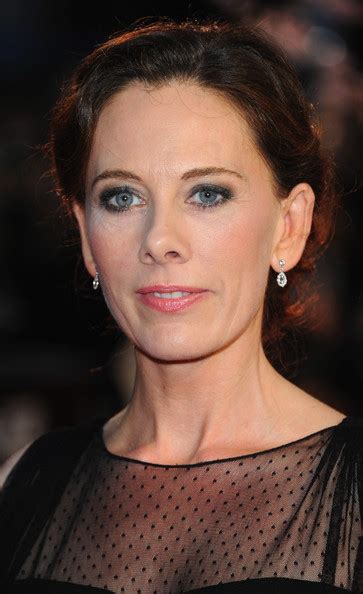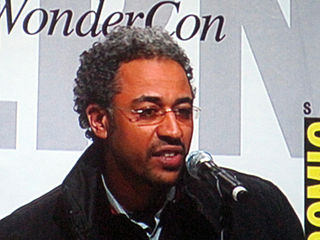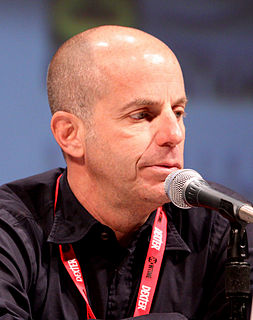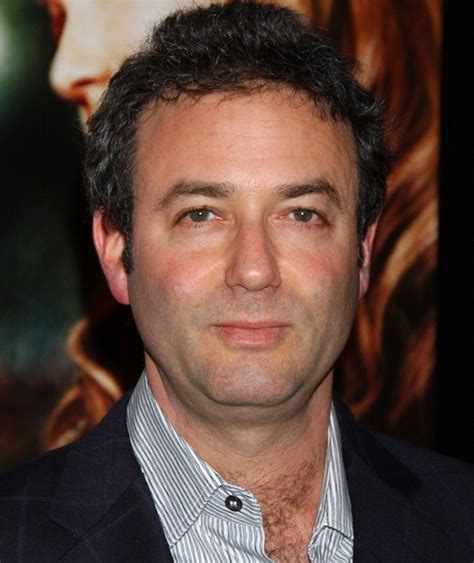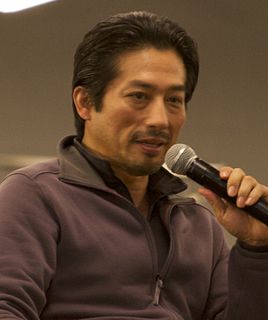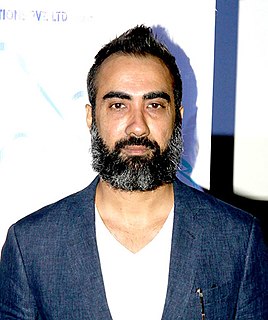A Quote by Charles Roven
I came from advertising. For me it's about protecting the director's vision. That's always the goal. There's keeping things on budget and on time and dealing with selling the movie so that to me is a focus. But also it's about serving the script. We are genre filmmakers, those are the films we love to make, so my perspective is a little different.
Related Quotes
hen Baillie [Walsh, writer and director] wrote the movie for me I wasn't doing what I'm doing today, so when we actually came to make the movie it seemed silly to change it. But who knows? That's the way things go. What was interesting for me - and what was always interesting in the script - was that you've got someone who appears to have everything, or at least has the opportunity to have everything, and he's f**ked it up, or lost it.
My agent called and said, 'How do you feel about a pirate movie? I mean, how often are you going to get that call? It's sort of the singularly most failed genre of our time, but I thought it had to be attempted one more time. I think there's something rebellious about pirates, something revolutionary about them. They came out of a time when things were oppressive; you could get hung for stealing a loaf of bread. For me, the Pirates films are about when it's right to break the rules to achieve what you want.
The Cable Guy was underbudgeted, so it was always a debate about whether we could have more days or certain things that we needed, because the budget was determined before the script was written. So that made it a hard production on everybody. But it's also a funny thing, because it's one of those movies that cost $40 million to make and made $100 million around the world, but at the time, it seemed like a disaster that it didn't make hundreds of millions of dollars, because Jim was on such a tear. But it was actually a successful movie.
You have to accept that the moment you hand a script to a director, even if you've written it as an original script, it becomes his or her movie. That's the way it has to be because the pressures on a director are so staggering and overwhelming that if he or she doesn't have that sort of level of decision making ability, that sort of free reign, the movie simply won't get done. It won't have a vision behind it. It may not be your vision as a screenwriter, but at least it will have a vision.
What gets yme excited about a project and character is the director, the script, who's involved in the movie, and the character. Those are pretty much the essentials. If it's something different, if it scares me, in a way, if it will stretch me or push me into certain places that I haven't been to, then I like that. If you're just trying to talk yourself into it, then it's probably not for you. It's hard to be selective.
It's funny: as a director, there are movies you make because you're passionate about getting your vision across, and you know that you're vision is different than anybody else. In those cases, you take the plunge, and it works, or it doesn't. You make the stylistic choices based on how you feel about the material.
The difference between working on Asian and American films is in the producer and director; everyone has their own style. But, Hollywood has a lot more money; they can spend a lot on films, and time. In Europe, there's a small budget and thinking about commercial. Only budget and taste is different between there and Hollywood.
I never worked on different films at the same time. I made one by one. I never made two or three films together. This is impossible! I only have one head. It is impossible for me to think about two films at the same time. There are a lot of these legends about me, and I don't know why. I'm not a legendary man. But the people all the time say I make three films at the same time, and it's not true. Don't believe these kinds of things.
